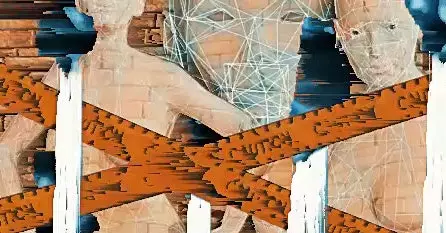In a recent report by WIRED, it was highlighted that the use of deepfake technology in creating nonconsensual pornographic videos is on the rise. The report mentioned that approximately 90 percent of deepfake videos are pornographic in nature, with a majority of them being nonconsensual depictions of women. This alarming trend has raised concerns about the ethical and legal implications of deepfake technology, particularly in the context of intimate images and videos.
Despite the growing prevalence of nonconsensual deepfake pornography, researchers have noted that legislators seem to be more focused on addressing political deepfakes. According to Kaylee Williams, a researcher at Columbia University, there is a noticeable lack of attention towards nonconsensual deepfake legislation compared to political deepfakes. The emphasis on protecting electoral integrity through legislation on political deepfakes has overshadowed the urgent need to address the issue of nonconsensual deepfake pornography.
One of the challenges in addressing nonconsensual deepfake pornography is the lack of consistency in legislation across different states in the US. The penalties for creating and sharing nonconsensual deepfakes, as well as the scope of protection provided, vary widely from state to state. Some states allow for both civil and criminal cases to be brought against perpetrators, while others may only provide for one of the two. This inconsistency in the legal landscape has created challenges in effectively combating the spread of nonconsensual deepfake pornography.
A notable distinction in nonconsensual deepfake legislation is the focus on minors versus adults. Some states have enacted laws that specifically target nonconsensual deepfakes involving minors, recognizing them as an “inherent moral wrong.” These laws aim to provide additional protections for minors who may be targeted by malicious actors creating and sharing explicit deepfake content. In contrast, legislation surrounding nonconsensual deepfakes involving adults is often more complex and nuanced, requiring proof of intent to harm the subject.
Despite the challenges and inconsistencies in nonconsensual deepfake legislation, there are opportunities for states to take a leadership role in addressing the issue. Matthew Bierlein, a Republican state representative in Michigan, has spearheaded efforts to introduce legislation targeting nonconsensual deepfakes. By collaborating with other representatives and advocating for comprehensive legal frameworks, states like Michigan have the potential to set a precedent for neighboring states to follow suit. Through coordinated efforts at the state level, enforcement and regulation of nonconsensual deepfake pornography can be strengthened across the country.
The landscape of nonconsensual deepfake legislation in the US is multifaceted and complex, with varying approaches and priorities among different states. While there is a growing recognition of the need to address the ethical and legal implications of nonconsensual deepfake pornography, more concerted efforts are required to establish consistent and comprehensive legal frameworks. By prioritizing the protection of individuals, especially minors, and enhancing enforcement mechanisms, states can play a critical role in combating the harmful effects of nonconsensual deepfake technology.


Leave a Reply